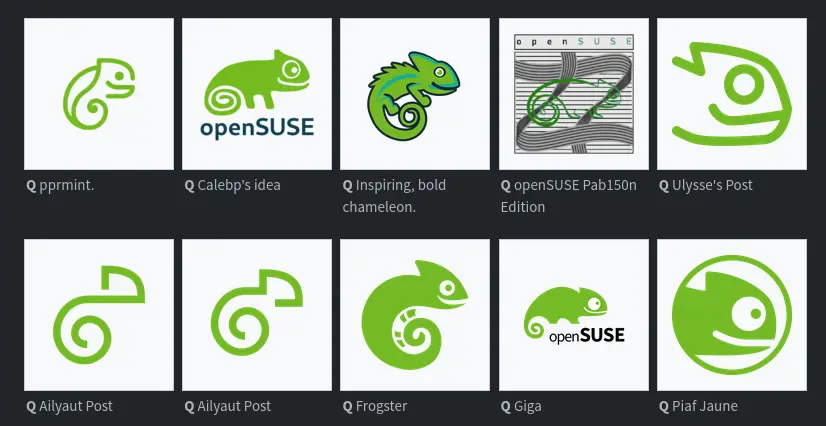About that, I don’t really see the appeal of Slowroll, except as psychological reassurance for those who would feel the need to update every time a snapshot comes out. I mean, I personally slow-roll on Tumbleweed all the time by only updating once a month, sometimes more and sometimes less like for this update. I’d be interested to know why you use it!
- 3 Posts
- 32 Comments

 2·1 year ago
2·1 year ago(Scusa il papiro)
Sono d’accordo che la quantità di dati che consegnamo volontariamente o senza saperlo ai giganti della tecnologia sia troppo alto, ma c’é un abisso tra lo scenario attuale e quello che viene proposto qui.
Prima di tutto finora i dati finiscono in mani –passami il termine – “benevole”, nel senso che sono sì enormi aziende con troppo potere, ma il loro scopo è venderci roba, non farci attivamente del male. Questo significa che sono interessati solo a certi aspetti delle nostre vite, quelli da cui possono trarre profitto. In più i dati non consistono in uno schedario unico contenente un profilo completo di ogni persona, ma in spezzoni frammentari che vengono aggregati con quelli di altre persone per verificare trend e preferenze generali. È sicuramente possibile costruire un profilo completo di un individuo con tutti quei dati, ma ci vuole molto lavoro e accesso a un numero enorme di dati di varie compagnie. In più diciamolo, è possibile semplicemente evitare i prodotti più anti-privacy (smartwatch che mandano dati di salute, assistenti per la casa che ascoltano sempre… non sono esattamente essenziali) e chi vuole può trovare alternative per molte altre cose. Niente di drastico come andare a vivere nei boschi.
L’eccesso di sorveglianza di cui si parla qui invece, del tipo “la tua tv ti guarda mentre dormi” è ancora in larga parte illegale, fa scandalo quando casi isolati vengono scoperti ed applicazioni generalizzate esistono ancora solo nei piani futuri di CEO e agenzie di sicurezza. Non è impossibile mantenere la situazione così, in cui la privacy è sì erosa, ma non al punto che tutti sappiano automaticamente cos’hai mangiato ieri sera o com’è fatta la tua camera da letto.
Per finire, parlando di cambiamenti futuri, è improbabile ma comunque plausibile che sul lungo termine il mercato dei dati ad un certo punto crolli e che improvvisamente questo tipo di erosione della privacy non porti più vantaggi economici. A quel punto sarebbe un vero peccato aver rinunciato interamente alla privacy perché “tanto non ce l’abbiamo comunque”.

 1·1 year ago
1·1 year agoPrecisamente, la morale può cambiare molto. Chissà quali tue abitudini, idee e comportamenti potrebbero col tempo diventare inaccettabili, illegali, o prese di mira da gruppi estremisti/un governo che prevarichi le proprie competenze/la società in generale che viene a saperne attraverso una grossa fuga di dati. Nessuno ha voglia di vivere la propria vita come se fosse continuamente su un palcoscenico, ma le conseguenze sono potenzialmente molto peggiori di un semplice fastidio. Per fare un esempio, negli stati uniti da un giorno all’altro l’aborto è diventato illegale in molti stati e i dati delle app per il tracciamento del ciclo possono incriminare una donna. Il concetto di vita privata protegge da conseguenze negative future.
Thank you, I didn’t know about ydotool, I’ll get it working on openSuse
That’s a great workaround, could you share the command?
How do the Tumbleweed Folks among us deal with this?
We generally don’t add many third party repos and we set repository priorities. If I understand this correctly, you are currently using official openSUSE packages and your upgrade is prompting you to upgrade them by changing vendor to this home:wolfi repo. If you want to keep the original packages, you just need to set priorities: in YaST 's “Software Repositories” page for instance, you can select a repo and see what its priority is (99 is the lowest priority, 1 is the highest). You could for instance put the official repos at 95 priority and the wolfi repo at 99. This way, packages will remain set on the official repos even if there are new versions on the other repo.
However, if you have packages that you want to get from the wolfi repo but are also in the official repos, with this method you will be asked to change those packages to the official repos, the inverse situation compared to your issue. You can tell the system to keep those packages from your chosen repo, I do it by choosing a version on the YaST Software page.
I love how the division in Europe vaguely looks like the Protestant Reformation led to different prefix numbers (I know I know, Poland & co don’t match)
I had the same annoyance and ended up uninstalling it, I’ll look into remapping the up arrow too, I never liked the way ctrl-r works anyway. By the way, do you know how to delete a command from history in atuin? I found a bunch of discussions in development about this and some comments saying the function was added, but never mentioning the shortcut or command to delete

 15·2 years ago
15·2 years agoOh COME ON. Where was this when my laptop died a month ago? I had to replace it asap and the previous kde slimbook was already out of stock. I got a great tuxedo, but this one is the same price and much better specs… I have the worst timing. Great news for everyone else though!
Beta? It isn’t experimental, it was an official feature that is no longer supported (even if it still works perfectly).
As I said somewhere else, to get more compact tabs you can go to about:config and search for a setting called
browser.tabs.tabMinWidth, I usually change the number to 20 (the default minimum width is like 70) and tabs are allowed to become roughly as narrow as in chrome. And if by “more compact tab bar” you meant how tall tabs are, there’s thebrowser.compactmode.showsetting, put it to “true” and then in the Firefox menu under More Tools → Customize Toolbars you can select “compact mode” in the “Density” menu on the bottom, which makes the tab bar and toolbars shorter
This video is criticising Lunduke, it isn’t made by him

 1·2 years ago
1·2 years agoTo mitigate this you can go to about:config (write it in the address bar) and search for a setting called
browser.tabs.tabMinWidth, I usually change the number to 20 (the default minimum width is like 70) and tabs are allowed to become roughly as narrow as in chrome. It’s a much simpler and stabler option compared to custom CSS

 2·2 years ago
2·2 years agoI agree, I honestly expected a much starker difference in land use. I also agree that soy beans can be grown responsibly, except of course it’s often not the case. The fact that both soybeans and insects are being grown largely as a source of protein for cattle brings us once again back to the main issue: cows!

 5·2 years ago
5·2 years agoAccording to this study a mealworm farm uses more energy per kg of protein produced compared to chicken, but much less energy than any other meat. However, mealworm farms rank lowest in CO₂-equivalent emissions per kg of protein and lowest in land use compared to all meat products, including chicken.
Apparently soy beans produce 6.82 kg of CO₂-equivalent per kg of protein isolate (which is 90% protein, therefore 7,5 kg of CO₂-equivalent per kg of protein), while mealworm farms produce 14 kg of CO₂-equivalent per kg of protein (and around 30 kg for chicken, the next best option). Worse, but less than double.
As for land use, the first study calculates that to produce 1kg of protein from mealworms it is necessary to use 18 square meters of land per year (including the land to grow food for the worms) while according to this other study vegetable proteins need up to 25 square meters of land per year for each kg of protein.
I admit it’s not as big a difference in land use as I thought (it’s different studies, they might have slightly different metrics) , but I think there are other factors that make it a much more complicated issue: mass use of fertilizers, monocultures, deforestation, soil impoverishment… An advantage of mealworms might be that you can give them a variety of foods that are easier on the soil (the first study mentioned carrots, grains and other stuff) in order for them to produce protein, while protein-heavy plants require rich soil and tend to drain it fast.

 91·2 years ago
91·2 years agoI really don’t think it’s a matter of “haters”. It might be more logical and consistent if you have no other frames of reference, but most Plasma users come over from other OSs who all use double click (Windows, Mac, even Gnome). If a new user blindly tries KDE and keeps accidentally opening everything while trying to select it’s just an immediate and big annoyance. It’s not even clear that it isn’t a bug because there is no clear explanation of how to select and how to open.
Edit: we are of course all used to single clicking on touch screens, but there it is contrasted with the long press to see options and some “select mode” for file management. There is no system that works exactly like Plasma single-click, which makes it disorienting.

 141·2 years ago
141·2 years agoNo, there are those big plus signs appearing on the top-right corner of the icon, if you click there it selects instead of opening. I guess it’s a matter of habit, I can’t get used to it

 13·2 years ago
13·2 years agoThe whole eating insects idea is motivated by carbon emissions and similar concerns: insect meal is around 60-70% protein (beans are around 30%, maybe bean meal is more but I have never seen it anywhere), and its cost in terms of emissions and land use is much smaller than either meat or plants (especially stuff like soy). Nobody is arguing that it should replace beans. Rather, it could help diminish meat consumption.
After 4 years on btrfs I haven’t had a single issue, I never think about it really. Granted, I have a very basic setup. Snapper snapshots have saved me a couple of times, that aspect of it is really useful.



Oh alright, I do see the point now! I had the wrong idea about how it works. I get the need to have more guarantees on functioning packages